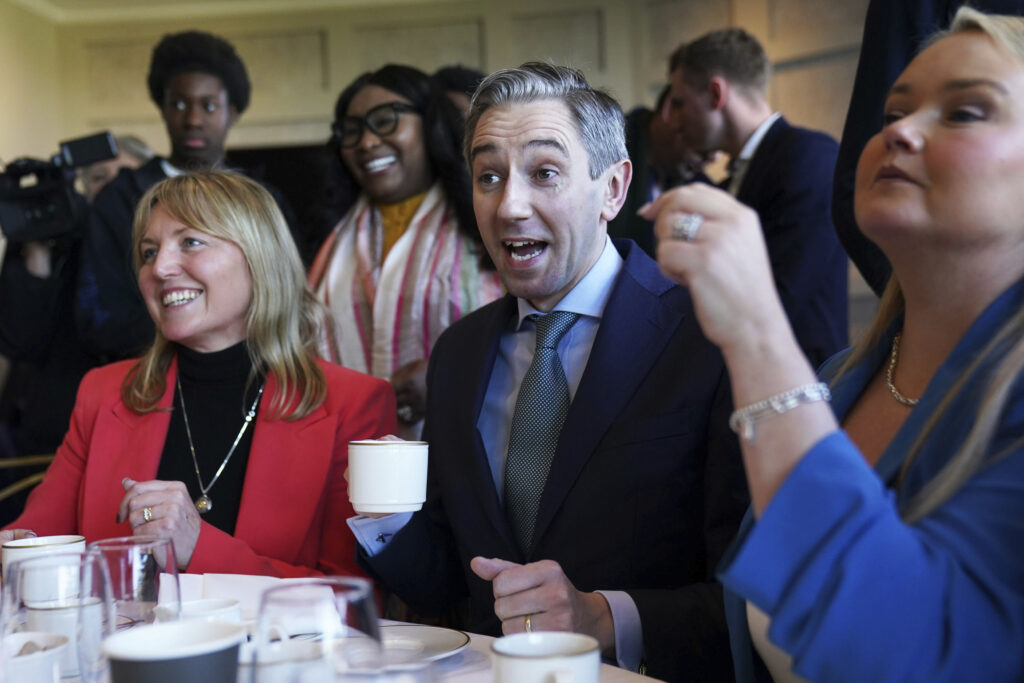Ireland Votes: Will a Viral Blunder by a ‘TikTok Taoiseach’ Ensure That the Anti-Incumbent Storm Touches Down at Dublin?
A photo finish seems likely for the Emerald Isle following a viral gaffe by the frontrunner.

Ireland heads to the polls Friday for a vote at a time when the headwinds of change are being felt from London to Paris to Tokyo to Pretoria to Vienna to the District of Columbia.
The sitting Taoiseach, Simon Harris, had been confident enough in his position and that of his party, Fine Gael, that he moved to call early elections. Mr. Harris took over the top spot when the previous Taoiseach, Leo Varadkar, in a shock move, resigned in March. He said he “was no longer the best person” for the job.
Mr. Harris came out on top in the battle to succeed him, and polls showed him with a commanding lead heading into the vote this week. Mr. Harris’s standing, though, has eroded. An Irish Times poll on Monday showed that his party was down six points. That leaves Fine Gael in a three-way tie with another centrist party, Fianna Fáil and the more radical Sinn Féin, long associated with the Provisional Irish Republican Army.
Mr. Harris, Ireland’s youngest ever leader at 38 years old and so adroit with social media that he has been called the “TikTok Taoiseach,” committed a viral blunder last week at a supermarket north of the city of Cork, Ireland’s second largest after Dublin. He was approached by a disability care worker, Charlotte Fallon.
Ms. Fallon accused him of not providing enough support. Mr. Harris quickly turned away. Ms. Fallon called him “not a good man” and later told the Irish Times that “I hope nobody else has to have an interaction like that ever, because it’s not very nice going home crying,”
The taoiseach took to Instagram to acknowledge that he did not give Ms. Fallon “the time that I should have given her, and I feel really bad about that.” Mr. Harris also told RTÉ, the Irish public broadcaster, that he “got it completely wrong … I didn’t meet my own standards, let alone anybody else’s.”
If Mr. Harris’s slide continues, the leader of Fianna Fáil, Micheál Martin, stands to benefit. Mr. Martin is now the Tánaiste, or Minister of Foreign Affairs. He also serves as Defense Minister.

Messrs. Harris and Martin have vowed not to serve in government with Sinn Féin and its leader, Mary Lou McDonald. She currently serves as the leader of the opposition, but she and her party, leftist in orientation and devoted to the cause of a united Ireland, have grander ambitions. She succeeded Gerry Adams as the leader of a party long associated with the Troubles in Northern Ireland, and in 2020 delivered strong electoral results.
Polls in the following years put Sinn Féin’s support as high as 35 percent, and the party achieved a signature victory in 2022 when its vice president, Michelle O’Neill, garnered the most seats in the Northern Irish parliament, known as the Stormont.
That raised the possibility that if Sinn Féin could control the Irish parliament, or Dáil, the century old dream of a united Ireland could be fulfilled. The party, though, has since struggled following a series of internal scandals and rising Irish skepticism toward immigration.
There are 160 seats in the Dáil and a host of smaller parties, meaning that a coalition government is inevitable — likely between Fine Gael, Fianna Fáil, and the Green Party. All parties have told voters that they have answers to Ireland’s vexing housing crisis. Prices are up 10 percent this year, rent has soared, and a government housing position determined that the country has a “deficit” of up to 256,000 homes.
Immigration is another salient issue in this country of just over 5 million people. Twenty percent of Ireland’s population was born outside the Emerald Isle, and the Associated Press reports that “120,000 foreigners moved to Ireland in the year to April, the biggest number since 2007.”
A stabbing last year outside a school in Dublin — an Algerian man has been charged — sparked the city’s worst rioting in decades. Unlike such countries as Germany and Austria, Ireland has yet to see a right-wing resurgence.
Also unlike England and much of the continent, Ireland’s economy is thriving. Unemployment is historically low, and the debt is half what it was a decade ago. The country’s low corporate tax rates means that, as the American Irish Chamber of Commerce puts it, “There are now 970 US companies in Ireland, employing 378,000 people directly and indirectly and spending more than €41 billion in the Irish economy annually.” American companies put more than $30 billion a year in taxes in Dublin’s coffers.
The Wall Street Journal caricatures the situation that “the Irish government is rolling in clover like never before,” due to a 15 percent corporate tax rate to big companies — America’s is 21 percent. President-elect Trump, though, has proposed lowering this country’s rate to 15 percent, meaning that Ireland’s windfall could be on borrowed time.
That could be but one point of contention between Ireland’s left-leaning political culture and the new administration in Washington. Ireland, notable among European nations in its visceral commitment to the Palestinian cause, is wedded to the United Nations and international bodies like the International Criminal Court, both of which appear set to embark on combative relationships with the new administration in America.

